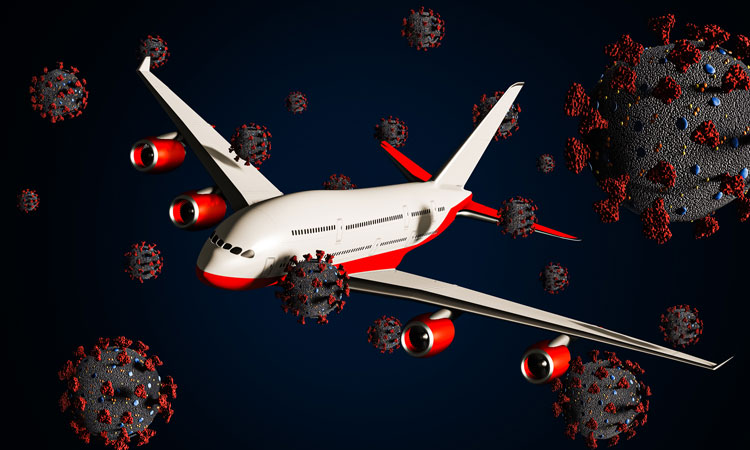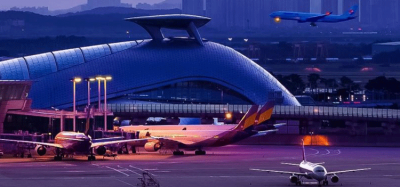BARIG calls for standardised international COVID-19 restrictions approach
Posted: 6 August 2020 | International Airport Review | No comments yet
With a coordinated and consistent global approach to COVID-19, BARIG has said that passenger confidence in travelling will be restored.


The Board of Airline Representatives in Germany (BARIG) is observing with great concern that, in view of the COVID-19 pandemic, individual countries – within the European Union (EU) and worldwide – are increasingly introducing individual and location-specific travel restrictions. These uncoordinated measures have led to difficulties in regard to managing a patchwork of regulations, which causes massive uncertainty among travellers.
The urgently needed international ‘track-and-tracing’ solution that enables compatibility between the individual state apps and enables successful data exchange is still missing. Instead, BARIG has outlined that the pandemic management must be coordinated, transparent and at the highest level in order to regain the trust of travellers and to help the heavily burdened international economy to get back up on its feet.
BARIG’s Secretary General, Michael Hoppe, said: “Countries that have adopted uncoordinated individual travel restrictions and regulations need to urgently rethink their actions. Joint, coordinated action by the international community – which also needs to be based on the recommendations of the expert bodies of the International Civil Aviation Organization (ICAO), the European Union Aviation Safety Agency (EASA) and the European Centre for Disease Prevention and Control (ECDC) – is essential for overcoming the global economic consequences of the pandemic.”
Join us live: Shaping the Next Generation of Hold Baggage and Air Cargo Screening
Join us live for an insightful webinar on 11th December at 14:00 GMT, in collaboration with Smiths Detection, as we explore the strategic balance of operational efficiency, regulatory compliance, and sustainability in high-volume security environments.
This session offers a focused look into future-proofing your security strategy.
Key learning points
- Cost Reduction: Strategies to minimize bag travel time while simultaneously reducing operational costs.
- Regulatory Roadmap: Insights into the next wave of regulatory changes and their impact on future investment decisions.
- Sustainable Systems: Practical approaches to building sustainability into security systems and lowering the total cost of ownership (TCO).
- Scalable Solutions: Real-world examples of scalable systems supporting current airport growth and preparing for tomorrow.
Register now for expert insights, case studies, and actionable strategies on operational efficiency!
The specific demands of BARIG include:
- Joint assessment of the COVID-19 situation within the EU and worldwide by the responsible state ministries and higher-level institutions, such as the European Commission (EC) and a coordinated procedure derived from this
- Coordinated implementation of the ‘Take-Off Aviation Health Safety‘ protocol developed by ICAO, EASA and ECDC
- Compatibility of the tracing apps published by the states
- Clear information for travellers about possible measures always in coordination with the travel industry.
Hoppe added: “Travel restrictions not only hurt the aviation industry extremely, but also have a heavy impact on the European and global economy, and delay the urgently needed recovery enormously. The cooperation of the international community and the close coordination of measures are essential to ensure that travellers fly safely and enable the sustainable reactivation of the economic cycle, simultaneously. With the comprehensive protection and hygiene measures at the airports, as well as on board the aircraft, the aviation industry enables people to have a health-friendly transport.”
The International Airport Summit is open for registration!
Date: 19 – 20 November 2025
Location: JW Marriott Hotel Berlin
At our flagship event of the year, we will dive into the future of airport operations, with expert-led sessions on passenger experience, innovative smart technologies, baggage handling, airside operations, data, security, and sustainability.
This is where global airport leaders come together to share insights, challenges, and real-world solutions.
Limited complimentary passes are available for eligible professionals – first come, first served!
Related topics
Airport crisis management, COVID-19, Economy, Passenger experience and seamless travel, Regulation and Legislation, Safety
Related organisations
Board of Airline Representatives in Germany (BARIG), European Centre for Disease Prevention and Control (ECDC), European Commission (EC), European Union (EU), European Union Aviation Safety Agency (EASA), International Civil Aviation Organization (ICAO)


















